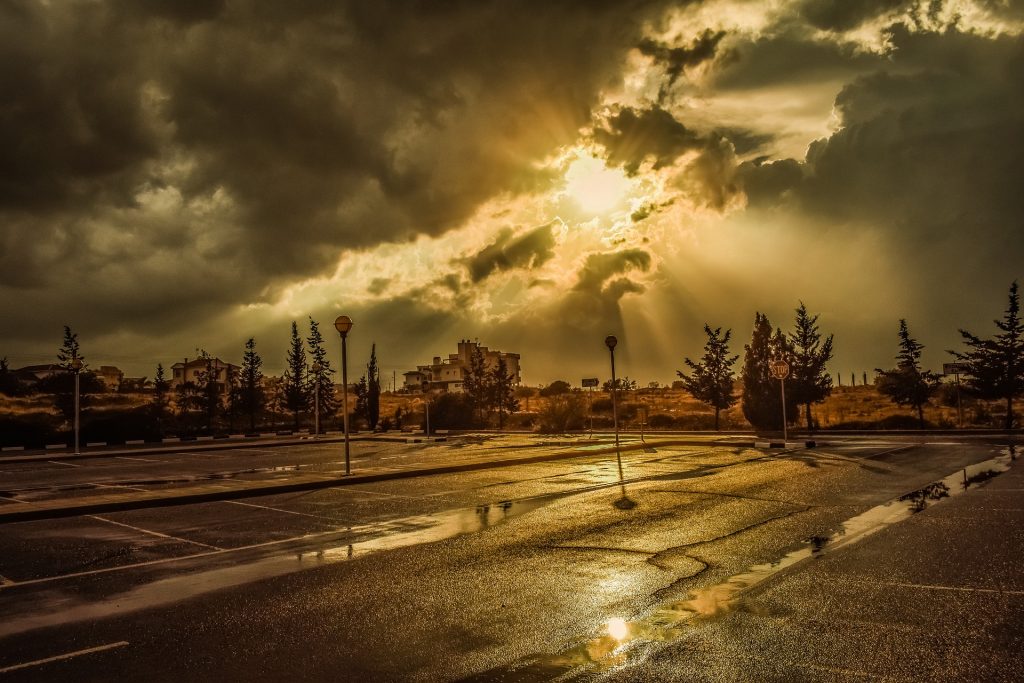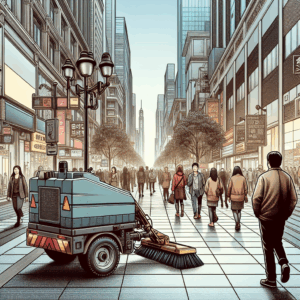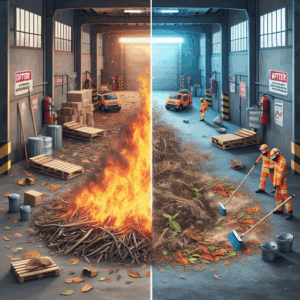Power Sweeping and Its Role in Urban Planning
When you walk or drive around your city, you might notice how clean the streets are. Have you ever wondered how they stay so tidy? One important tool for keeping our urban areas clean is something called "power sweeping." It might not sound exciting, but power sweeping plays a big part in how cities plan and organize themselves, also known as urban planning.
What is Power Sweeping?
Power sweeping is a process that uses machines to clean streets and roads. These machines are often called street sweepers. They look a bit like giant vacuum cleaners or super-sized utility vehicles. They roll down streets with brushes underneath that spin around, brushing up dirt, leaves, trash, and debris. It's a much quicker and more efficient way to clean roads than having people do it manually.
Why is Power Sweeping Important?
-
Cleanliness: First of all, power sweeping helps keep our cities clean. This makes our neighborhoods nice places to live and work. People are happier when their surroundings are neat and tidy.
-
Safety: Power sweeping removes debris like broken glass or loose gravel. These could cause accidents if left on the roads. For example, a cyclist might lose control on a sharp piece of gravel, or a car could skid on a road covered in leaves. By cleaning up these hazards, power sweeping helps prevent accidents.
-
Environment: There’s more to power sweeping than just looking good. Cleaning up trash and debris prevents pollution from reaching our waterways. When it rains, trash on the streets can wash into storm drains and eventually into rivers, lakes, and oceans. By sweeping regularly, cities reduce the chance of this happening and help protect wildlife and water quality.
- Cost-Effective: Power sweeping can save cities money in the long run. When roads are cleaner, they’re in better condition, because dirt and debris can cause wear and tear over time. This means less spending on road repairs.
How Does Power Sweeping Fit into Urban Planning?
Urban planning is all about designing how cities grow and operate. It’s a big job, and there’s a lot to consider, from housing and transportation to parks and public services. Power sweeping fits into this puzzle because it ensures that one very important part of city life—our roads—remains functional and nice to look at.
-
Planning Routes and Schedules: Urban planners look at traffic patterns to decide when and where street sweepers should operate. For example, sweepers might come out at night in busy areas to avoid traffic jams. In residential areas, they might come on a schedule so people know when to move their cars.
-
Supporting Other Services: Clean streets support other urban services like waste collection, access for emergency vehicles, and drainage systems. Planning how power sweeping integrates with these services is crucial.
-
Encouraging Public Use of Spaces: When streets and public areas, like parks and plazas, are clean, people are more likely to use them. This participation boosts community connection and local businesses, which urban planners love to see.
Conclusion
While power sweeping might seem like a small part of urban planning, it’s actually super important. It helps keep our streets clean, safe, and environmentally friendly. Plus, it saves cities money and supports other services. Next time you see a street sweeper go by, you'll know just how important it is in keeping our city a place we all love to live in.









